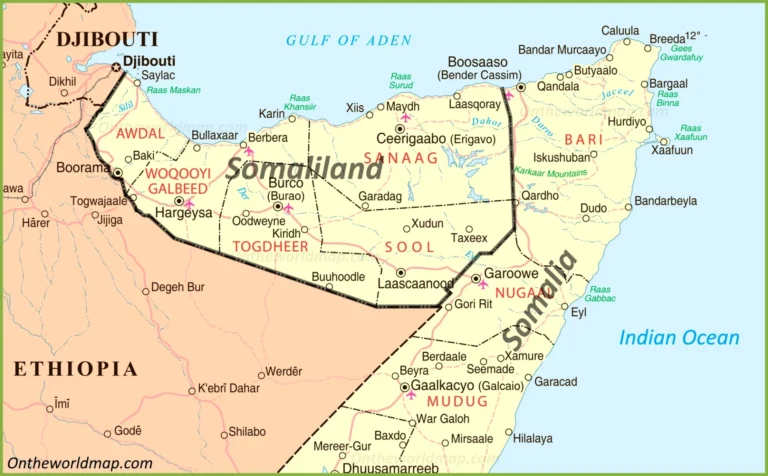
Dangerous Game of Patriotism
It is with deep disappointment and dismay that we must address a recent social media attack by a former follower @Checkmatedsl one X (Twitter)- one with 5K followers—who has launched a baseless, venomous tirade against the newly established Bridging Somaliland News Media, a platform founded by me. I am a respected and long-standing journalist and patriot.
The accusation? That our site, with its modest but steadily growing following of 13, is “misleading the public” and “spreading lies.” Worse still, the attacker goes as far as to imply that I am somehow affiliated with “Faqash” a term intentionally used to evoke hostility, suspicion, and public backlash in the ongoing media war between Somaliland and Somalia. These are not criticisms. They are character assassinations. And they are wholly, disgracefully false.
Let’s be clear: I am no newcomer to the Somaliland struggle. I have been a voice for this nation’s sovereignty since 1991, using my pen and global platforms to speak for peace, unity, and international recognition. My dedication is chronicled in over 400 published pieces, none of which, in any way or form, have ever expressed sympathy for Somalia’s claim over Somaliland. To call his website a mouthpiece for “the Faqash” is not just misinformation—it is defamation, bordering on libel.
This reckless accusation—devoid of any journalistic rigor, evidence, or even a shred of integrity—suggests only one thing: malicious envy. Why else would someone question why a senior official from the Office of the President @HusseinDayr would follow a new but promising publication? Are we to assume that follower counts are now the metric of patriotism? Was the accuser herself not once a fledgling voice with zero followers, growing over time as all creators do? Does she imagine she woke up with 5K followers? I am delighted you “blocked” my account, good riddance!
Such logic is not only infantile—it is dangerous.
What is most shameful is the use of a political insult “Faqash” to discredit a fellow citizen and journalist. In the digital age, following the content of adversaries is not disloyalty—it’s strategy. Real journalists monitor all sides to expose threats, critique propaganda, and keep the public informed. I follow only on this platform, The Official Somalia Foreign Ministry website (and our news website as she claimed, has no “Links” to “Faqash links”). Following the official Somalia foreign ministry page does not imply allegiance. It implies vigilance.
What this attack truly exposes is a disturbing immaturity about media warfare and patriotism. If the accuser had done even a cursory review of my personal account @NassirKahin, she would have seen a consistent, unwavering voice in support of Somaliland’s independence and unity. Likewise I publish the same views and analysis on our site @Bridging_sland as well as on the group I recently founded on Facebook, Somaliland Unity and Recognition Initiatives (SURI). But instead, she chose to attack publicly, carelessly, and personally—perhaps in hopes of drawing attention to herself (saying he @HusseinDayr doesn’t follow her account and other like minded accounts, accused him that it must be his own website! ) from the same Presidency Office she now pretends to defend.
Moreover, accusing a journalist or his publication of being affiliated with the enemy—without proof—is an intentional and calculated act of public defamation. If it’s meant to damage a reputation, destroy credibility, and incite others to unfollow or boycott, then it is indeed defamatory. That her words caused a Presidential Office official @HusseinDayr to unfollow the account in question suggests real harm has already been done. If this was directed at both myself and the publication I founded Bridging Somaliland website, then it doubly underscores the personal nature of the slander.
Many in Somaliland’s media and political circles know that such accusations, if left unchallenged, can tarnish reputations for years. That is why this matter cannot be left to whispers or private outrage. The accuser must issue a public retraction and formal apology to myself and our media outlet. Anything less would be a cowardly retreat after lobbing a grenade into a room and walking away.
To @Checkmatedsl we say this: Your actions are not just an affront to me – they are an affront to the principles of fair journalism, national unity, and respectful discourse. You have crossed a line not of opinion, but of integrity. And in doing so, you have shown your true colors—not as a defender of Somaliland, but as someone willing to sabotage a fellow patriot for personal clout.
Let this be a warning to others: In a time when Somaliland needs unity, vigilance, and voices speaking boldly for its rightful recognition, petty slander and reckless ego-trips serve only the real enemy. I will continue to stand for Somaliland. The question is: who will stand against defamation disguised as patriotism?


